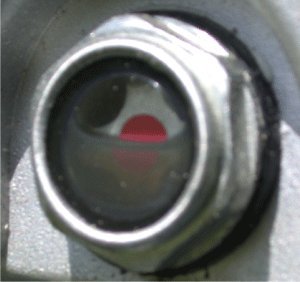It can be quite a daunting task trying to figure out how to change your Quincy compressor oil, how much to use and what is correct Quincy oil to use right? Well, fear no more, I will answer all these questions in relation to Quincy compressor oil for you.
Table of Contents
- What kind of Oil goes in a Quincy Compressor?
- How Much Quincy Oil to Use in a Quincy Compressor?
- How to Change Quincy Compressor Oil
What kind of Oil goes in a Quincy Compressor?
It is extremely important to refer to your compressor manual before purchasing Quincy oil for your Quincy compressor. We have numerous Quincy compressor manuals available on our brand page so please visit here first!
The manual will tell you what Quincy oil is compatible with your air compressor, if you cannot locate your manual, please contact Quincy directly or visit their website to download a manual for your compressor.
Quincy Compressor Oils Available on Amazon
Quincy have a non-detergent 30W compressor oil readily available on Amazon that is suitable for their reciprocating compressors.
- Single grade viscosity, ISO 100, 30W non-detergent compressor lubricant
Prices pulled from the Amazon Product Advertising API on:
Product prices and availability are accurate as of the date/time indicated and are subject to change. Any price and availability information displayed on [relevant Amazon Site(s), as applicable] at the time of purchase will apply to the purchase of this product.
They also have extended support and maintenance kits for single stage compressors which includes 40W compressor oil as well as air filter elements.
- Kit doubles warranty on your Quincy compressor to 2 years bumper-to-bumper and triples pump warranty to 3 years (parts and labor)
Prices pulled from the Amazon Product Advertising API on:
Product prices and availability are accurate as of the date/time indicated and are subject to change. Any price and availability information displayed on [relevant Amazon Site(s), as applicable] at the time of purchase will apply to the purchase of this product.
Alternative Compressor Oils Available on Amazon
A few alternatives to the Quincy advised compressor oils are produced by Mobil. Again, it is very important to ensure the oil is compatible with your air compressor before putting it into the system, so please check first!
The first is the Mobil 101016 Rarus which is suitable for reciprocating air compressors whether they’re single or multistage. This oil lubricant boasts excellent water separability, protection against rust and corrosion, long life for extended oil drain and provides your compressor with very clean air valves.
Prices pulled from the Amazon Product Advertising API on:
Product prices and availability are accurate as of the date/time indicated and are subject to change. Any price and availability information displayed on [relevant Amazon Site(s), as applicable] at the time of purchase will apply to the purchase of this product.
The second is the Mobil 100870, boasting similar benefits as the previous oil but potential to work with reciprocating, rotary screw and rotary vane compressors.
Prices pulled from the Amazon Product Advertising API on:
Product prices and availability are accurate as of the date/time indicated and are subject to change. Any price and availability information displayed on [relevant Amazon Site(s), as applicable] at the time of purchase will apply to the purchase of this product.
How Much Quincy Oil to Use in a Quincy Compressor?
It can be a tricky task determining how much Quincy oil a specific model of compressor pump requires without having the actual manual at hand.
So, if you’re struggling to locate your specific manual, you should contact Quincy directly or search the internet for the specifications of your Quincy compressor and its model to find it!
I will provide you tips on how to check the Quincy oil amount inside your compressor and then present to you a step by step guide on how you can go about changing it.
Quincy Oil Sight Glass
The image below shows a sight glass, here you can check the amount of Quincy oil inside the compressor pump. Ideally, you would aim for the oil being approximately half way up the red dot.

Quincy Oil Dipstick
Sometimes the pump may not have a sight glass, so you can check using the dipstick. These will typically be found as part of the Quincy oil fill tube cap and they extend down into the sump and Quincy oil.
Take the dipstick out of the sump and give it a wipe, then dip it back into the sump and when you pull it out again you can check the markings on it, which will tell you the Quincy oil level.

Alternative Method for Checking Quincy Oil
If you don’t have a sight glass or dip-stick on your Quincy compressor, an alternative method you could use is draining the Quincy oil from the tank into a reservoir.
How to Drain Quincy Oil from the Sump
Start by locating your Quincy oil drain (a plug underneath the pump housing). Then you can drain the Quincy oil into a reservoir, and gauge how much Quincy oil was in your pump.
Note: Be careful when draining the Quincy oil incase you get any spillages. A useful tip may be laying something out on the floor below the compressor to avoid this and catch any spillages.
How to Change Quincy Compressor Oil
Changing the Quincy oil on each model of Quincy compressors can vary. Before doing anything, and I know this may sound silly, but ask yourself if your compressor definitely is oil lubricated. If you need, check the model manual or contact Quincy directly to find this out.
Changing Quincy Compressor Oil Process
After following the steps described for draining the Quincy oil from the compressor into a reservoir, securely tighten the plug back into the bottom of the sump.
At the top of the Quincy oil sump there will be a port into which you can add the replacement Quincy oil you have at hand. As the process can vary depending on the specific model of your Quincy compressor, it is difficult to be any more specific.
Add roughly the same amount of Quincy oil that you’ve removed, or gauge it using the sight glass or dipstick if you have either. Be cautious though, as you do not want to overfill the sump.
Note: when filling the compressor with Quincy oil, ensure you do not fill the air intake on the pump.
Summary
The above methodology is simplified for ease into the following steps:
- Check the Quincy compressor oil level
- Locate plug beneath compressor sump
- Drain Quincy oil into a reservoir
- Securely tighten plug back into sump
- Locate the Quincy compressor oil port
- Replenish the compressor with the same amount of Quincy oil as removed (do not overfill)
Without having access to every air compressor model manual, and assuming that the manual tells the reader what the Quincy oil volume is, there is no way to be anything but vague when providing advice about changing Quincy compressor oil.
If you have any questions about Quincy compressor oil, changing it, which to use and how to use it then please leave a comment below with photos if applicable to help others respond to you!
